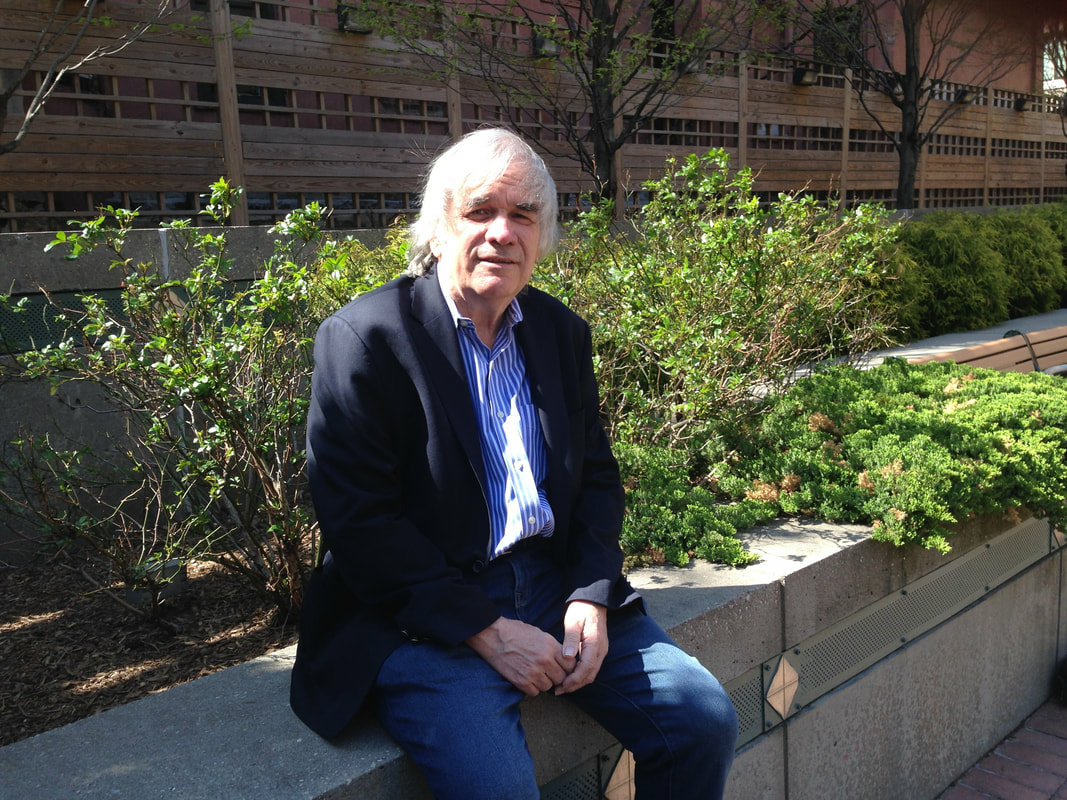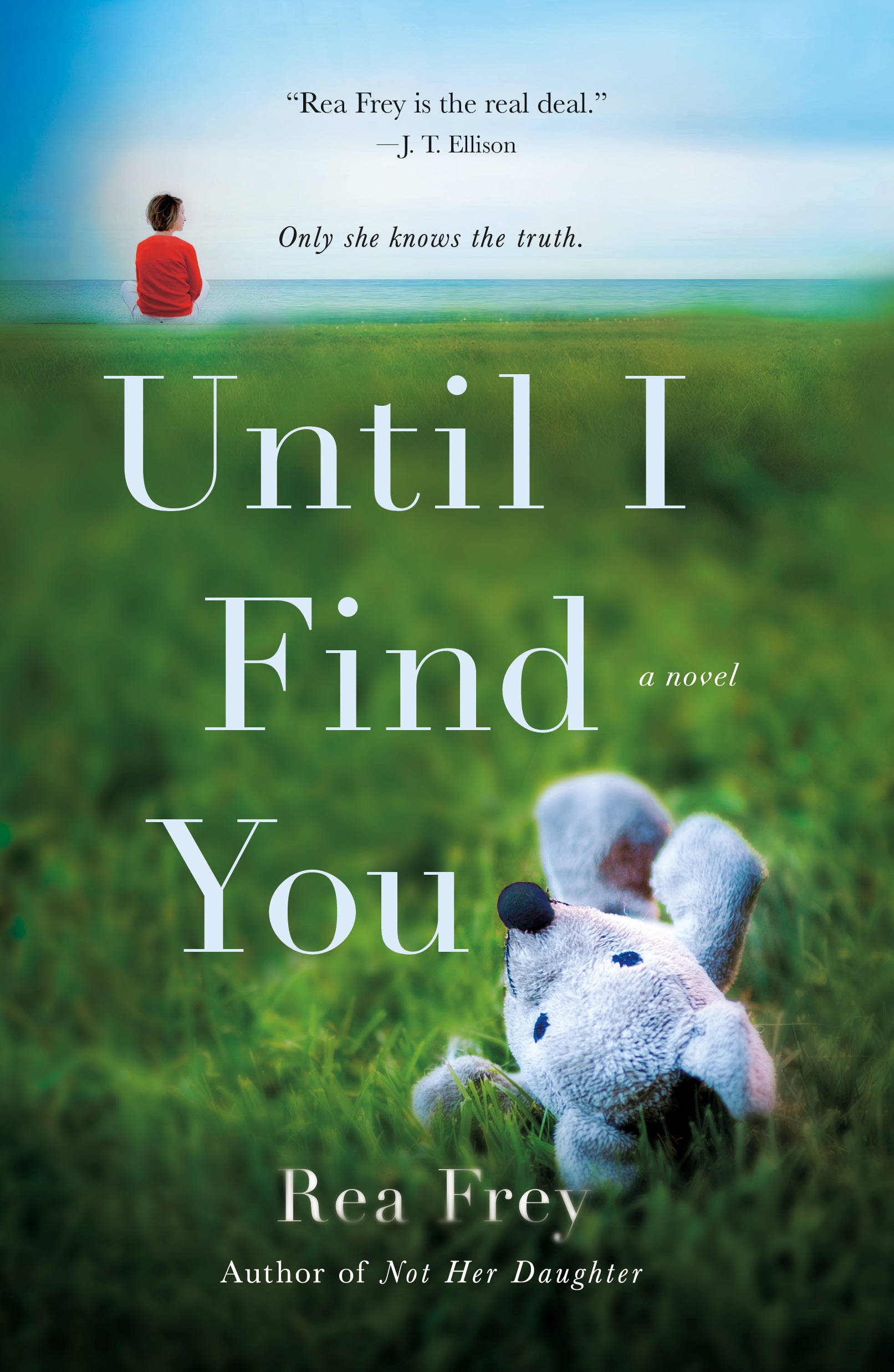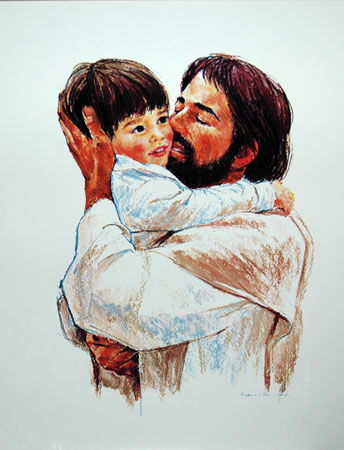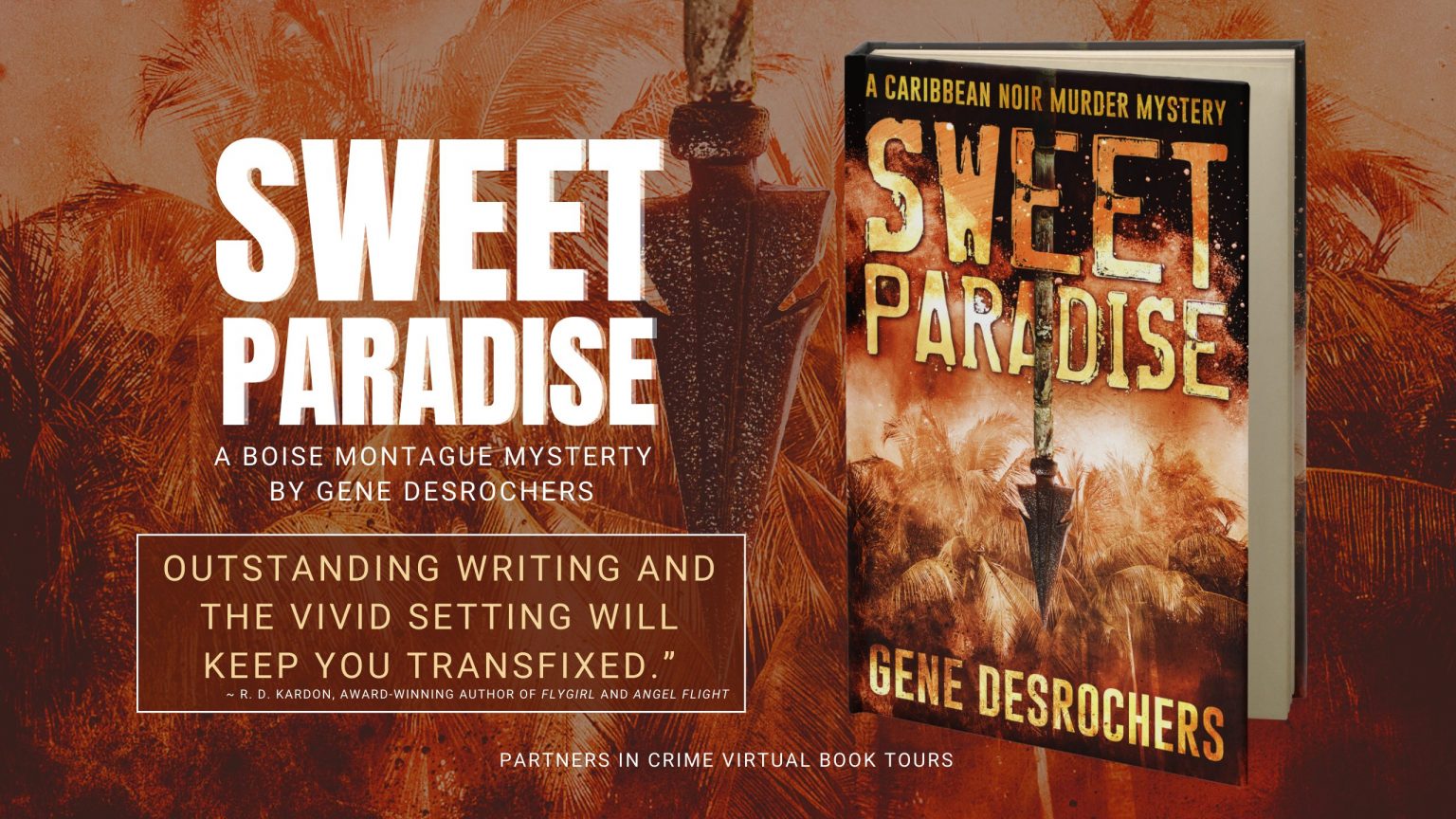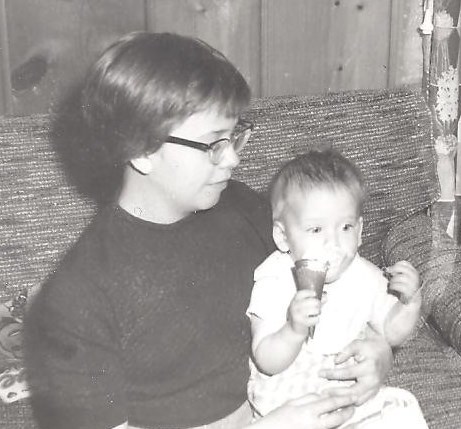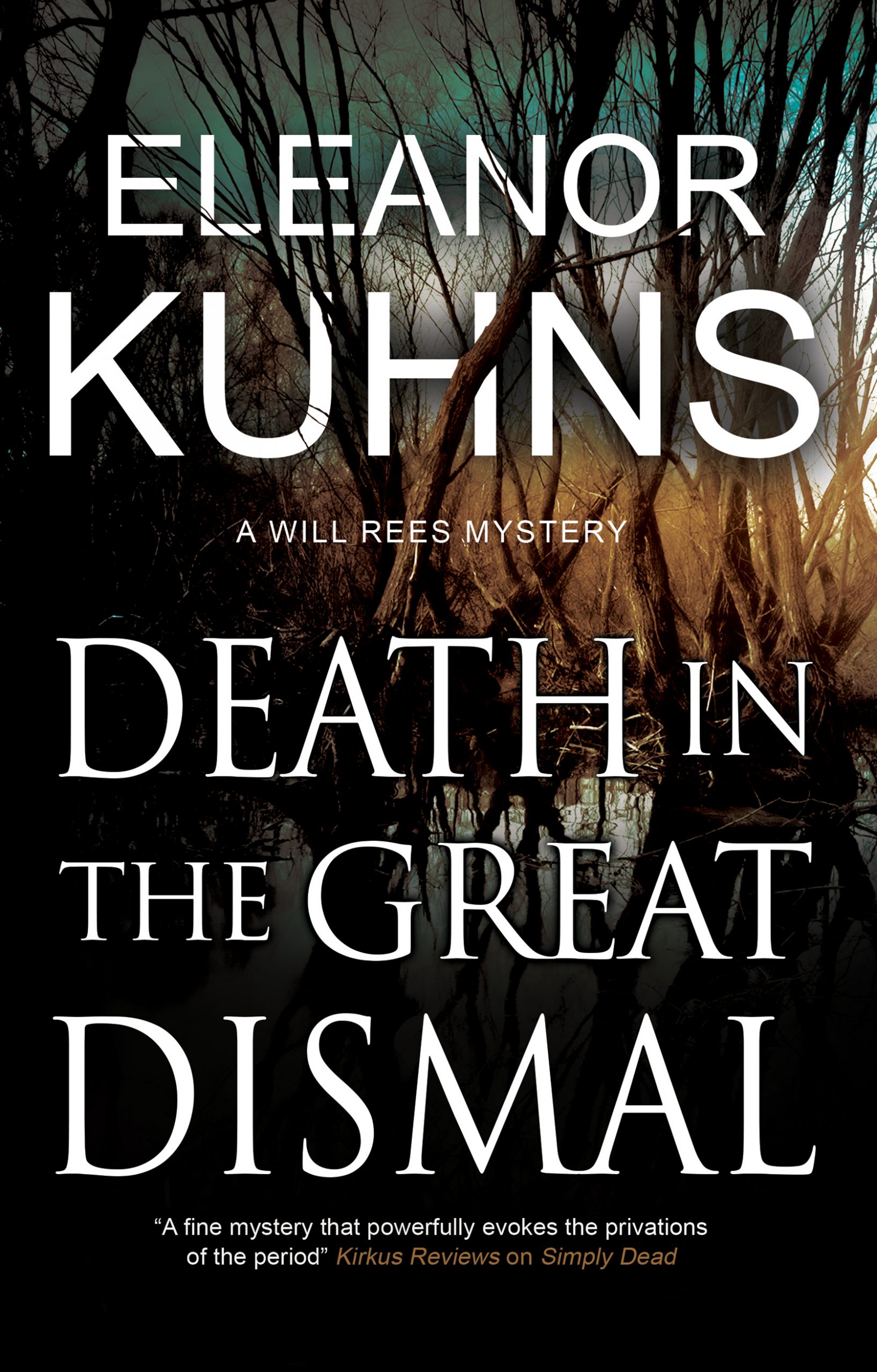Upon arriving in a small community of absconded slaves hiding within the Great Dismal Swamp, Will and Lydia are met with distrust. Tensions are high and a fight breaks out between Tobias and Scipio, a philanderer with a bounty on his head known for conning men out of money. The following day Scipio is found dead – shot in the back.
Stuck within the hostile Great Dismal and with slave catchers on the prowl, Will and Lydia find themselves caught up in their most dangerous case yet.
Will Rees and his wife Lydia prepare for a trip to help their friend Tobias bring his wife home. You can find out more about why Lydia doesn’t trust him to go alone if you read A Circle of Dead Girls first.
They have no idea of what’s in front of them. They also have no idea of how difficult it will be to get to the Great Dismal.
They waded into a murder filled swamp. Now they can’t leave until Will solves the murders. He’s made a promise he’s unwilling to break. No matter how dangerous it gets.
He’s not even sure Tobias’ wife is even willing to go home with them.
Thank you, Ms Kuhns. I’ve been enjoying the Will Rees mysteries.
Prologue
‘You want me to do what?’ Rees asked, staring at the man next to him. He had not recognized Tobias at first. When taken by the slave catchers, Tobias had been a young man. He was still a young man in Rees’s opinion, but he no longer looked like it. Now gray threaded his hair, grooves scored his forehead and his eyes were haunted. He looked as though he’d experienced the worst of what man had to offer. Rees felt a burst of sympathy.
‘I want you to accompany me to Virginia,’ Tobias repeated. ‘To the great swamp.’ When Rees sat back in the creaky porch chair without answering, Tobias rushed on, ‘Please. Ruth is pregnant and wouldn’t come north with me. She was afraid. And it was difficult, so difficult, even with the help of the Quakers. I don’t dare go south to fetch her without help.’
‘But you made it back home,’ Rees objected. ‘Won’t the Quakers help you again? I don’t understand why you need me.’
‘I don’t think they run the railroad south,’ Tobias said with a faint smile. ‘Besides . . .‘ His eyes drifted away from Rees to the yard and the barn behind it. It was late September and the hills behind the farm were a mosaic of gold, orange and red interspersed with the dark rich green of the firs.
‘Besides?’ Rees repeated. Tobias was keeping something back; Rees knew it.
‘Besides it is even more dangerous now.’ Tobias’s gaze returned to Rees. ‘A man named Gabriel Prosser led a slave revolt. Planned it anyway. Right around Richmond. Everybody real tense. I need a white man beside me. Ruth trusts you. You’re the only one I know who will travel.’ He swallowed, his expression beseeching.
Rees still said nothing. Several years previously, Tobias and Ruth, both free blacks, had been snatched off the streets of Dugard, Maine and taken south.
‘How did you find me?’ he asked instead of acknowledging Tobias’s question. He was tempted, no denying that. Most of the harvest was in and he’d finished his final weaving commission. After a summer spent working on the farm, he felt restless and was ready to do something different.
‘I went to Dugard first. It was your son that told me where you were. He said you gave him your farm.’
‘Yes. We moved to this farm.’
‘Will you help me?’ Tobias asked, leaning forward. Rees looked at the eagerness on the dark face peering into his. Rees hesitated. He should say no, he knew he should.
‘Maybe,’ he said instead. What would Lydia say? His journey would leave her alone on the farm with the children for several weeks; he couldn’t see her agreeing to that.
‘I think we should go,’ Lydia said, stepping through the front door.
‘Really?’ he asked in surprise.
She nodded. ‘I know the signs; you’re getting restless.’ She paused but Rees did not speak. Since the circus had come to town in the spring and he’d been attracted to the beautiful rope dancer, the relationship between him and his wife had been strained. She was edgy with him. Sometimes he caught her staring at him and lately she’d become prone to crying fits, for no reason he could see. ‘But, if you go,’ she continued, ‘I want to accompany you.’
‘What?’ Rees jumped to his feet and the chair crashed to the floor behind him.
‘I’d like you to join us,’ Tobias said eagerly, turning to face her. ‘Ruth will join us readily if there’s another woman.’ Then, catching sight of Rees’s expression, he added, ‘If possible.’
‘It’s too dangerous,’ Rees said.
‘Predictable,’ Lydia muttered.
‘It’ll be easier to travel through the South if everyone thinks you are just a man and wife with your slaves.’ Tobias’s mouth twisted into a grimace. Rees leaned forward to clap the other man’s shoulder in commiseration but before he touched him Tobias flinched away. The involuntary cringe made Rees himself jerk back. What had happened to Tobias in Virginia?
‘It would be a long trip for my horse,’ Rees said. ‘Especially pulling my wagon.’
‘We could take the cart,’ Lydia suggested.
‘You couldn’t get them through the swamp anyway.’ Tobias said. ‘Unless,’ he paused a moment, thinking.
‘You could leave them at a livery in Norfolk.’
‘Hmm,’ Rees grunted. He didn’t like the thought of leaving his horse and wagon anywhere. ‘We’re finishing up the harvest. Even if I wanted to help you, this isn’t a good time.’ He made that one final objection.
Tobias turned to look at the fields. The corn and wheat were cut to stubble, but pumpkins spotted the fields with orange and buckwheat, the second planting, waved in the breeze. ‘You wouldn’t be gone long,’ he pleaded, his eyes reddening as though he might weep. ‘Plenty of time to finish this.’ He waved his hand at the fields.
Rees, who could not abide tears, especially in another man, held up his hand. ‘All right, I’ll think about it.’ Of course he couldn’t go. It was a long distance and even if they hurried, they might not return until mid-October or later. By then Maine could see snow.
‘Please,’ Tobias repeated, sensing Rees’s longing and pressing his advantage. ‘Most of your crops are in and you got help bringing in the last of them.’
Since that was true, Rees did not argue. The Shakers had made good on their promise to assist him and some Brothers were even now in the fields. Besides the Shakers, Rees had hired a few of the landless men who wandered the roads looking for work. ‘If I were to accompany you,’ he said, ‘and that’s a big if, Lydia Rees must remain here.’
‘If you go, I go,’ she said. Rees shook his head, but she ignored him. Turning to Tobias, she said with a smile, ‘I know Ruth well. Let my husband and I confer. Come back tomorrow for our answer.’
His face lighting up with hope, Tobias rose to his feet. ‘Tomorrow then.’
As Tobias jumped off the wooden deck and began crossing the yard, Rees said to Lydia, ‘You know this isn’t possible.’
‘If you leave without me, I will follow. You know I will,’ she said.
Rees frowned at her. Always watching him, that was his wife. He felt a combination of shame and irritation that she still did not trust him. ‘Lydia,’ he began. But she interrupted him.
‘We need to talk about last spring and what happened,’ she said. ‘Here, at the farm, we are too busy and always distracted.’
‘It will be a long and grueling journey,’ Rees warned, hoping to discourage her.
‘You know some of the Shakers are traveling south to check on their Georgia and Florida communities,’ Lydia said. ‘We can follow them in the cart. And Annie and Jerusha can watch the children.’
Chapter I
Rees felt a trickle of sweat roll down his back. Although it was late September, the heat and humidity here in Virginia slammed down like a hammer. He wasn’t used to this heat, especially at this time of the year. In Maine the weather was already cooling, and the air was as crisp and tart as a fresh apple. Here every breath was thick with the cloying scents of a hundred different plants.
Rees looked back over his shoulder at Lydia. They’d been walking over three hours, but she seemed to be bearing up well. As Tobias had suggested, they’d left horse and cart in Norfolk. The Shakers had brought them the rest of the way, dropping them off within walking distance to the swamp. As soon as they had left the road where they’d said goodbye to the Shakers, Lydia had taken shelter behind a bush and changed into her boy’s clothing. Once belonging to Rees’s eldest son, the shirt, vest and breeches were worn, almost tattered, but thoroughly disguising. She’d put her auburn hair up under a hat as Rees stowed her dress in the satchel he carried over his shoulder. Rees also had changed – from his better breeches, shirt and jacket to old and worn breeches and shirt.
Now Tobias waited for them several paces ahead. Rees hoped the other man knew where he was going. As far as Rees could tell, there was no discernible path through the tall pines and the thick undergrowth below. Although they’d passed fields of tobacco and cotton, Tobias had been careful to stay within the bands of trees.
‘We’re going to cross a road,’ Tobias said now. ‘Be real careful there.’
Rees did not think the drops of perspiration on Tobias’s brow came from the heat; he was nervous. No, he was scared. Rees began looking around, waiting for some large animal to jump out at them. But except for birdsong and the faint whisper of the wind through the trees, within the patch of woods it was silent.
Tobias paused at the edge of the dirt road and peered through the thorny greenbriar vines. Seeing nothing, he cautiously circled the brambles. Pausing within the undergrown, he looked up and down the road once again. Seeing nothing, he burst out of the shelter and started across the road. But a white dust cloud at the top of the hill heralded the arrival of something – or someone. Two riders came over the hill. When they saw Tobias they increased their speed, galloping straight at him. He tried to reach the other side of the road, running for all he was worth, but the horses easily caught up. The riders reached him as he plunged into the underbrush on the other side.
‘Stop runnin’, boy.’
‘Massa,’ Tobias shouted.
Taking the musket off his back and pulling his powder horn and shot bag from his satchel, Rees turned to Lydia. ‘Stay here,’ he said before leaving the shelter of the trees in his turn and racing across the road.
As the white riders dismounted and went after Tobias, Rees followed the sound of voices into the underbrush.
The two white riders had Tobias in their grasp. “What’re you doin’ out here alone,’ the tallest of the men asked in his slow drawl. He wore a buttercup yellow coat despite the heat and a white waistcoat. Tall black boots, now dusty from the road, went almost to the knees of his newly fashionable trousers.
‘Nuthin’.’ Tobias sounded different, his speech losing the crisp Maine consonants. His posture had gone from upright to a kind of servile crouch. The young, shorter man, dressed more casually but wearing a top hat, shook Tobias threateningly.
‘Where’d you get those boots?’
‘Hey,’ Rees said loudly.
‘Go about your business,’ the tall rider told Rees.
‘He’s mine,’ Rees said, trying to mimic the other man’s leisurely dialect.
Both men examined Rees, their gazes fixing on his musket. ‘Out huntin’?’ The speaker turned to look at Tobias. ‘He looks like a strong young buck. I’ll give you $50 dollars for him.’
‘Not for sale,’ Rees said curtly. He thought for a moment that these men would not listen to him but after a brief pause the two men brushed past him and returned to the road. Rees followed them, making sure their horses galloped away. Then he pushed his way back to Tobias.
‘You all right?’ he asked. Tobias nodded although he had collapsed to the ground. Perspiration glistened on his skin and big damp moons darkened his shirt under his armpits.
‘You took a big risk,’ he told Rees in a shaky voice. ‘Just because you’re white doesn’t mean you’re safe.
They could have figured you for an abolitionist and whipped you just as hard as they would me.’
‘I’m going to get Lydia,’ Rees said. He was trembling so hard he wasn’t sure he could hold his musket. Instead of sprinting across this dusty lane, he walked on legs that shook uncontrollably. Lydia came out to meet him, taking his arm.
‘Esther was right,’ Lydia said. Rees nodded.
Sister Esther, an escaped slave who’d made her way north to the Shakers, had scolded them when they left. ‘You’ve no business going south,’ she’d said. ‘You’re totally unprepared. I hope and pray you don’t get Lydia killed on this mad adventure.’
‘We’re committed now,’ Rees said.
Tobias had recovered enough to stand up. ‘It’s not far now,’ he said when Rees and Lydia reached him.
‘What happened?’ Lydia asked.
Tobias and Rees traded glances and wordlessly agreed to say nothing. ‘We don’t have time now,’ Rees said. ‘I’ll tell you later.’ He was still shaky and Tobias was clenching and unclenching his hands, whether from fright or anger Rees couldn’t tell.
Tobias started off, setting such a punishing pace neither Rees nor Lydia could keep up. He began to worry that they would lose their guide; the thickness of the trees, the brambles and other plants meant that Tobias disappeared within a few yards.
The third time that Tobias waited for them he said tersely, ‘We need to get out of sight while its daylight. Hurry.’
‘We’re going as fast as we can,’ Rees said, turning to look at his wife. Both of them were panting and her cheeks were scarlet. ‘We’ve been walking for hours.’ And he was hungry. None of them had eaten since breakfast that morning and it was now several hours past noon. Tobias grunted.
‘We’re not that far from the lane,’ he said, turning and disappearing once again in the greenery.
It wasn’t just that he was fast. He snaked his way through the underbrush without making a sound or breaking any branches. Rees, taller and probably two stone heavier, couldn’t do that. Even his steps were noisy, crunching over the leaf litter on the ground with crackling thumps.
Tobias led them toward a large downed tree. Rees couldn’t understand why – until the other man lifted a board artfully covered with branches and leaves, revealing a hole underneath. ‘This way,’ he said, squirming through the opening. Rees struggled to press his huskier body through, discovering that the small cavity opened up to a much larger hollow. A rough ceiling had been formed above their heads and tree roots poked through the dirt that made up the walls. Stone steps led down into the gloom. Ducking his head against the low ceiling, Tobias descended into the darkness underneath.
Lydia followed him and then Rees, bending almost double.
A cave had been dug deep into the soil. It smelled powerfully of damp and dirt. Dimly lit by several oil lamps, the den was occupied by several people in ragged clothing. A family, Rees thought, since he saw several children. They fled to the comfort of their mother’s skirts when they saw the big white man enter their home. But, to his surprise, they didn’t cry.
The men all rose from their stools, their shoulders tensed. Although weaponless and barefoot, they were ready to fight to protect their friends and families. Rees’s heart began to race and he stood straighter, fists clenched. He was taller and heavier than anyone else here, but he knew he could not battle four or five men at once. There was no room for fighting in this den either.
‘He’s helping me get Ruthie,’ Tobias said as he collapsed to the ground. Both Rees and Lydia looked at him and she went to his side.
‘Are you all right?’ she asked. He nodded, blowing out little puffs of breath. ‘You must love Ruthie very much.’
‘I do,’ he whispered, turning his head aside.
There’s more to this story, Rees thought.
‘What happened?’ One of the men asked Tobias although his eyes never left Rees.
‘Two-.‘ Tobias cut his eyes to Rees. ‘Two white men tried to take me. ‘Lucky for me, my friend Rees here jumped in.’
Some of the tension left the room. Rees relaxed a little. He had never thought of his white skin before. But now, in a room full of black people, with he and Lydia the only whites, he experienced a sharp realization of how it felt to be an object of suspicion and fear because of that skin. He didn’t like it and turned a glance of surprised sympathy upon Tobias.
‘We be eating soon.’ One of the women stepped into the center of the cave. ‘Join us.’
Rees opened his mouth to accept. He was very hungry after his day hiking through the woods. But Lydia spoke first. ‘Are you sure you have enough?’
The woman, who carried herself with an air of authority, looked at Lydia – and her boy’s clothing – with interest. ‘Yes, chile. We do. Swamp food.’ She paused and when she spoke again it was to Tobias. ‘You plannin’ to leave at nightfall?’
‘Yes. We’re heading for the Great Dismal.’
‘Mos’ people head the other way out of that swamp,’ she said with a chuckle.
‘Ruthie’s there,’ Tobias said.
‘Oh honey,’ said the woman, ‘she could’ve been recaptured by now.’ The words ‘or worse’ hung unsaid in the air.
‘I have to try,’ Tobias said stubbornly. The woman offered him a pitying smile but said nothing further.
When night fell, people began to move outside. The women pulled away the branches and other debris disguising the fire pit and set up a cooking fire. The scanty smoke drifted lightly across the ground as they made a corn porridge and roasted game meat over the fire.
‘It’s turtle,’ Tobias told Rees in a low voice.
The steady whine of mosquitoes and the sound of slapping punctuated the quiet conversations. Frogs croaked nearby, filling the air with sound. Lydia reached into the satchel for a small stone crock. ‘What’s that?’ Rees asked.
‘Esther gave it to me. Something to keep the mosquitos away.’ She tugged at the lid but it was so tightly closed she couldn’t budge it. Rees took the crock and with some effort twisted the lid off. A fresh minty scent flooded Rees’s senses. When he inhaled deeply, he caught other fragrances: lemon and something else that was sharp and astringent, and underneath it all the sweetness of honey.
‘What is it?’
‘Herbs. Pennyroyal I think. Lemon. Maybe sage. All pounded into a salve with beeswax and oil.’ Lydia spread some on her face.’ She promised me it would keep away the mosquitoes.’
Rees hesitated. The paste smelled feminine. But he could already feel stings on his hands and neck. After a few seconds, he took the pot from her and liberally smeared the mixture on his skin.
‘Eat up,’ Tobias said, handing first Rees and then Lydia wooden bowls filled with the yellow mash. ‘No hot food tomorrow, or any food most likely.’
Lydia looked at the bowl. ‘Spoons?’ Tobias, smiling, shook his head. So Lydia and Rees imitated the others and dipped their fingers into the hot cereal. Rees decided he had to eat it quickly. Not only was it still quite warm but it was not tasty. He did not think it even included salt.
As soon as they finished eating, the men began to drift away, vanishing into the forest. The family went next, a young man guiding them.
‘Headin’ north,’ Tobias said when Rees wondered aloud where everyone was going. ‘Everyone but Auntie Mama. She lives here. Keeps this space for travelers.’ He put down his wooden bowl. ‘And we got to get going too. We still got a long way.’
Chapter 2
Morning found them at the edge of the Great Dismal Swamp. Rees, who had spent a restless night slapping at mosquitoes – despite the salve that was meant to keep the insects at bay, awoke groggy and irritable. Although Tobias had not pushed them as hard during the night, he had still set a rapid pace. All of them were hungry but far worse than the hunger was the physical discomfort. The insect bites maddened them with their itching and the scratches from the branches and brambles they had pushed through in the dark stung and bled.
As the first light of dawn poked its fingers into the swamp, Rees looked around. They had bedded down in a stand of loblolly and long leaf pine trees. Pine needles carpeted the ground. Not far away, at the end of the piney growth, was an alien landscape. Trees reached to the sky. Rees recognized oak, maple and hickory but what were those trees with the skinny narrow leaves. Underbrush; thick thorny greenbriar vines and a variety of bushes, made a solid green wall underneath. Tobias found an opening in the thicket and gestured to Rees and Lydia.
‘Walk exactly where I walk,’ he said. ‘Mostly we’ll be on dry ground. Mostly. Not always. And watch for snakes. Lots of copperheads and cottonmouths here.’
They stepped inside. Although he expected the swamp to be silent, the air reverberated with the sound of insects; a high- pitched rattling whine. He looked up but could not see the source of the drone. Thick greenery and tall trees occluded the sky. Despite the bright sun and the blue sky above, the light within the swamp was dim. Glittering black water snaked across the ground in every direction. Vast trees with swollen roots like the thighs of some enormous giant sprang from the wet. Now Rees knew why Tobias had advised not taking his horse and wagon; there would be no way to get them through the tangled underbrush and mud.
He wished he had worn stout boots instead of shoes.
‘Is it safe to travel in daylight?’ Lydia asked Tobias, looking around her in concern.’ ‘Safe from slave takers, I mean.’ Like Rees, the blotchy marks of many mosquito bites marred the skin of her face and neck. She’d rolled her long sleeves down to cover her arms and hands and pulled her stockings up to her breeches.
‘Usually.’ Tobias bit his lip. ‘They come here sometimes with their dogs hunting the escaped slaves. We’ll have to be careful. And real quiet. But the swamp is too dangerous after dark. Besides snakes, bobcats and bears hunt here. Alligators too, so I’ve heard.’ As Rees gulped, Tobias nodded. ‘If we’re lucky and don’t meet any of them, we’d be as likely to fall in the water and drown as anything.’
Rees looked around once again, understanding why people called this dark place dismal, and shivered despite the steamy warmth. He wished his desire to help Tobias hadn’t overridden his sense. Most of all he wished they hadn’t come. Lydia slipped her hand into his and he squeezed it comfortingly even though he was scared too.
Tobias handed around the stale bricks of day -old cornbread. Rees took a bite of the hard dry bread. ‘Water?’ he asked.
The other man gestured to the black water. ‘It’s drinkable,’ he said. ‘Don’t worry; it doesn’t taste bad.’ Rees stared at the black pools surrounding him. A faint green scum drifted across the surface and ripples betrayed something moving underneath. He did not think it was fish. He shook his head. ‘Let’s go,’ Tobias said as he turned and started forward. A plop as some animal jumped into the water sounded nearby. Lydia jumped. Rees exchanged a glance with her, and they ran to catch up to Tobias.
The ground below their feet was black and moist and it shuddered a little with each step. It was disconcerting and more than once Rees found himself jerking to one side or the other to keep his balance.
They walked deeper into the Great Dismal until it seemed that this was all the world, and nothing else existed outside its borders. The dense vegetation, the water and the thick peaty earth muffled the sound of their footsteps. Still the insects loud buzz whined overhead.
Rees had put Lydia in the middle; between him and Tobias, and he looked around frequently – just in case a slave taker was behind him. After a few hours of walking he saw she was beginning to flag. ‘We need to rest,’ he said, and then repeated it more loudly. Tobias slowed and then stopped and turned.
‘All right,’ he said. He took a small bag from under his shirt and handed around the remaining chunks of stale corn pone. ‘That’s the last of it,’ he said.
It was, Rees thought, even harder and less edible than it had been before. Lydia sat down on the ground to eat hers. Rees looked around for a tree stump or something and spotted a dead fall a little way away. He had to tiptoe through a pool of black water to get to it. Just before he reached it, his left leg sank into the ground up to his ankle, then to his calf. ‘Help,’ he cried. He could feel his leg sinking even further.
‘I told you not to go off the path,’ Tobias said, hurrying to Rees’s side. Bending over, he grasped Rees’s knee and tugged. With a horrible sucking sound, as though the maw of an animal was only reluctantly surrendering its prey, Rees’s leg came out. Tobias pulled him back to the drier ground.
Thin brown mud coated Rees’s leg from knee to foot. Trembling, he just sat where Tobias had left him, despite the uncomfortable sensation of damp soaking through the seat of his breeches.
But Tobias couldn’t settle. He paced restlessly around and around. “Not far now,’ he said, cracking his knuckles.
‘Why is he so nervous?’ Rees wondered. The swamp? Slave takers? ‘How much longer do you think?’ he asked aloud, glancing around uneasily.
‘I hope to reach the village by nightfall,’ Tobias replied. Rees and Lydia exchanged a glance. They were already tired. When they started walking once again Rees took Lydia’s arm.
Although trees covered the sky and the sun was only occasionally visible, the temperature rose steadily. It was so hot and humid the air felt solid. Both Rees and Lydia began gasping for breath.
‘I’ve never perspired so much in my life,’ Rees muttered.
‘You ever come south before?’ Tobias asked. Rees shook his head.
‘No point. I weave for the farm wives who’ve been spinning all winter. Here, in the South, there are already weavers.’
‘The slaves,’ Tobias said, his tone flattening. ‘Every plantation has at least one weaver. And the owners rent out their slaves to the little farmers so even they don’t need a traveling weaver.’
‘It’s not right to own another person,’ Lydia said. A former Shaker, she was a firm abolitionist. Tobias glanced at her.
‘Better not say that to a white person down here,’ he said. ‘You’ll get whipped or worse.’
Lydia nodded, her lips tightening. Rees heard her mutter, ‘It’s not right.’ Tobias was too far ahead to hear her.
It was late in the afternoon when they reached an even more low -lying area filled with water. Cattails grew thickly around it. ‘Rest,’ Tobias said. He picked one and stripped off the outer covering. He handed pieces to both Rees and Lydia and when they stared at it in bewilderment, he bit off a chunk, chewed and swallowed.
‘It’s edible,’ he said.
Rees took a cautious bite. It tasted bland but was not unpleasant.
‘We’ll make one last push,’ Tobias said, gesturing at the black liquid stretching away from them. Rees peered at it. He couldn’t see through the black tint and that made him nervous. How deep was it? Trees with the swollen bulges grew out of the water, their leaves fluttering against the sky.
‘What is that tree?’ Lydia asked.
‘Cypress,’ Tobias answered.
‘Why is the water so dark?’ Rees put his hand in it and stirred, watching the dark tint fade as the water came up in his palm.
‘Don’t.’ Tobias reached out as if to grab Rees’s arm but hesitated. ‘Let me check for gators first.’ Rees snatched his hand out so fast drops flew everywhere. Tobias picked up a long branch and stretched it into the water. He thrashed it around until the water foamed up. When he pulled the stick from the pond, he stared at the water carefully. ‘All right,’ he said. ‘We go through it.’
‘There’s no other way?’ Lydia asked, her voice rising to a shaky falsetto. Tobias shook his head. ‘How deep is it?’
‘Mmm. Up to your knees maybe.’ He turned and added, staring at both Rees and Lydia intently, ‘Follow me exactly. Understood?’
Rees gulped. When he spoke he tried to sound just as usual. ‘Yes.’ He looked at Lydia and tried to sound reassuring. ‘I’ll walk right behind you.’ He realized he’d failed to appear unafraid when both Lydia and Tobias gazed at him in concern.
‘You’ll be fine,’ Tobias said. ‘Just follow me exactly.’
‘I’ll carry the satchel above the water,’ Rees promised Lydia.
She managed a brief nod but said,’ That’s not what I am worried about.’
Tobias stepped into the water and began walking forward. Rees put his hand on Lydia’s shoulder and squeezed. Lydia swallowed and tentatively put her foot into the pond. Rees followed closely, putting his left hand under Lydia’s armpit to keep her stable. With his right hand, he lifted the satchel to his chest to keep it and its contents dry.
Despite the warmth of the water, it hit with a shock. Clouds of silt spiraled upward and drifted through the black water in a brownish film. The footing was fluid and unstable and so slippery every step had to be taken with care. Rees stumbled, losing his grip on Lydia as he fought for his balance. She stopped and he could hear her sharp exhalation. Regaining his equilibrium, he stepped forward and grasped her shoulder once again.
Tobias was moving quickly. His eagerness to reach the opposite bank – and obvious nervousness about remaining in this water any longer than he had to -filled Rees with dread. He began pushing Lydia forward.
They were halfway across when something slid around Rees’s lower legs. Uttering a scream, he jumped, lost his balance and fell backward. ‘What?’ Lydia cried, turning. ‘What?’
‘I don’t know. Something touched me.’ Rees gasped in a big breath, tasting mud and dirty water.
‘Hurry,’ Tobias shouted from the bank. ‘Hurry.’ He pointed at a brown snake lying coiled upon the water.
Lydia began plowing ahead, using her hands at her sides like scoops to help. Shuddering, Rees hurried after her. Why had he agreed to do this? And with his wife. Guilt stabbed him, sharp as a knife.
Although the journey felt as though it had lasted an hour, it was probably no more than a few minutes. Rees felt as though he’d be trapped in this filthy water forever when, finally, the ground beneath their feet began to rise. The water dropped to Lydia’s knees, to her ankles and finally all three of them stood on the dry ground under a stand of loblolly pines. Rees took off his shoes and shook them. The leather, like his clothing, was soaked through. His linen shirt, his breeches and his vest were stained brown everywhere the water had touched.
He glanced at Lydia, sitting beside him on the muddy ground. Dirt streaked one sunburned cheek. ‘Sorry,’ he whispered.
‘I wanted to come,’ she said, without looking at him. ‘You tried to warn me.’
‘I didn’t know it would be like this.’
When he’d told her it would be dangerous, he’d thought of bad food, bad roads, bad weather. Not the casual threat directed at Tobias that, at best, could have cost him his freedom. Or this alien landscape with its treacherous ground and swarms of insects and the snakes and alligators hiding in its black waters.
Would she have argued so hard to come if she had known what they would experience on this journey? More to the point, would she have wanted to accompany him if she had trusted him? Nothing had happened with the rope dancer, that was the truth. But Rees had desired her, and she had responded with warmth. They’d enjoyed a friendship that might have become something more. Now he was many months removed from that time he could admit Lydia had been right to worry. He did not want to believe he would have left his wife and family behind but had to admit he had been so enthralled it was possible.
His behavior had left Lydia was so frightened for the future of her marriage she’d felt she had to watch over him. To do that she had to leave her children behind. She would never have been willing to abandon them otherwise.
He looked at the snake still floating on the water and shuddered. What would happen to their children if he and his wife died here? They would be orphaned because of his selfishness.
Lydia suddenly leaned over and touched his hand. ‘Don’t feel so guilty,’ she whispered. ‘I insisted on coming. You could not have prevented me.’
But it was his fault she’d insisted.
‘Only a few hours of daylight left,’ Tobias said, breaking into Rees’s thoughts. ‘We’d better hurry.’
Rees glanced at the sky. From what he could see, it was still a clear intense blue. “We’ve got a few hours still,’ he said.
‘It gets dark early under the trees,’ Tobias said. ‘Besides, most of the animals come out as soon as it starts getting dark. Especially snakes.’ He pointed to a ripple in the water. Rees peered at the v- shaped ripple. ‘Cottonmouth,’ Tobias said. ‘They swim under the water.’
‘Snakes,’ Lydia said weakly. ‘Are they poisonous?’
‘ Cottonmouth sure are.’
Rees thought of the thing slithering past his legs in the water and gulped.
‘It might not have been a snake. That touched you, I mean,’ Tobias said, correctly interpreting Rees’s reaction. ’There are other creatures here.’ Rees did not think he wanted to know what they were. When Tobias turned and started up the slight slope Rees helped Lydia to her feet and they scrambled after him as fast as they could.
Chapter 3
The ground continued to dry out as they passed through the pines. Although the soil remained damp it no longer bounced underfoot. But, as Tobias had warned, the light began fading beneath the trees. ‘Not far now,’ he said, puffing a little as he trotted up the slope. Neither Rees nor Lydia replied. The effort to keep up with Tobias left them breathless. Tobias was not moving in a straight line but sliding through the thick vegetation in a serpentine path. Rees, terrified that he would lose sight of the other man, kept pushing Lydia ahead of him.
Tobias’ path straightened out; Rees saw his pale blue shirt at the end of a long fairly straight tunnel, roofed by interlaced branches. The dim light shone upon them with a greenish cast and their feet crunched over the dead leaves on the forest floor. The loud crackling was shocking after the quiet steps on the peaty ground. When they reached Tobias on the other side he said, ‘Now we wait.’
‘Wait for what?’ Rees asked as Lydia pulled the pot of salve from Rees’s satchel. She smeared more of the insect repellent on her face and neck and handed it to Rees. Although he thought he smelled the faint fragrance of burning wood that odor was overpowered by the penetrating minty scent of the salve.
‘I hope we don’t use it all before we leave, and have to travel back through this swamp,’ Lydia murmured.
‘Here they come,’ Tobias said.
‘Who. . .?’ Rees began as three men materialized out of the trees.
Of differing shades, from very dark to white, the men were clad in rags and barefoot. One had almost no shirt at all. And all three were armed. One carried a scythe with a long handle but the other two brandished guns. One was such an old musket Rees doubted it would fire – although he didn’t plan to test his guess. They stared menacingly at Rees and Lydia.
‘What’d you done?’ The darkest of the men shouted at Tobias. His white teeth shone against his dark skin. His top two front teeth were separated by a large gap.
‘I come for Ruthie, Scipio,’ Tobias replied. rolling his shoulders forward. ‘He’s helping me.’ He gestured at Rees. Although the other two men stared at the white intruder, Scipio never removed his gaze from Tobias.
‘Ruth don’t want to go with you,’ he said, laughing mockingly. ‘There’re other men . . .’ Tobias lunged forward, fists up. As Rees grabbed him, the man with the lightest skin clutched Scipio’s arm. He was a handsome fellow with large hazel eyes, light brown hair and fair skin lightly tanned. Rees would have thought him white but for his hair, as curly as a sheep’s.
‘All right, Neptune,’ Scipio said, stepping back. ‘All right.’ Tobias strained forward as though he would follow.
‘Don’t,’ Rees said in a low voice. Tobias breathed hard for a few seconds before he visibly forced himself to relax. Rees cautiously took away his hand.
‘I want to talk to Jackman,’ he said.
‘You risked all of us,’ said the third of the men.’ No white man knows this.’ He gestured behind him. ‘Until now.’ This man was older than the other two and he held his scythe with easy comfort.
‘Let me talk to Jackman,’ Tobias repeated. None of the black men moved. ‘You know me, Neptune, Toney,’ Tobias added pleadingly.
The three guards exchanged a silent message. ‘Take ‘em to Jackman,’ Scipio said. ‘But first –.‘ He gestured to Rees and the gun he carried.
Neptune moved forward and relieved Rees of his musket. He did not resist. He did not think these men were killers, but he didn’t know. Besides, they were protecting their home and families and he could see the fear in their eyes and in the stiffness of their bodies. Maybe not as frightened as he and Lydia were – he could feel her trembling next to his arm – but anxious about what danger they might bring to their home. Sometimes, fear could cause a man to lash out without thinking and be sorry afterwards so Rees did not want to give them any reason to strike.
Besides, he reassured himself, with Tobias as their guide they most certainly would not be harmed.
Lydia reached over and clutched his arm. When he glanced down at her, she looked up with a face as white as milk under the mud and insect bites. Her eyes were huge. But she managed a shaky smile. Together they followed Tobias and the other men through the thick underbrush deeper into the swamp.
#
They reached the village as night was falling. The concluding leg had taken significant time although Rees suspected they hadn’t traveled a great distance. The ground had continued to dry, pine trees became more plentiful. They walked until confronted by a thick wall of thorny greenbriar vines. Everyone stopped for a moment of rest.
‘Just got to get through the canebreak,’ muttered Toney.
‘Follow me,’ Tobias said, turning to Rees. ‘There’s a path.’
There may be, Rees thought, glancing at the expressions on the men. But it would not be an easy one. All of them were steeling themselves for this, the final and ultimate challenge. Huffing out a breath, Toney took the lead through the narrow and spiraling path through the brambles. Even following Tobias as closely as they dared did not spare either Rees nor Lydia from numerous cuts and scratches.
The ground sloped up slightly. They slid through the protective barrier and climbed the short slope, stepping in the circle of buildings that were barely visible in the gloom. A fire burned in the center, the orange flames reflecting from the face of a woman who stood over the fire. Smoke eddied out from the burning logs and Rees could already feel the difference in the number of mosquitoes around him. Lydia dropped heavily upon the ground and put her face into her hands.
Scipio and Neptune grabbed Tobias and urged him toward the fire. ‘You want to see Jackman? Come along.’
Rees, his legs almost too shaky to hold him, collapsed next to Lydia. She leaned against him and closed her eyes in exhaustion. Rees felt like doing the same; he was so tired he no longer felt afraid. But he knew if he relaxed, he too would fall asleep and he did not want to do that until he knew they were safe. Instead, he looked at the young man guarding them.
‘What’s your name?’ Rees asked, his voice rusty with disuse.
‘Cinte,’ he replied, sounding startled. He was very fair and his hair glittered with flashes of gold when he turned his head. Rees guessed he was probably little more than twenty. ‘Here they come.’
A group of people were slowly approaching. Backlit by the fire, they were only silhouettes. Rees stood up and pulled Lydia to her feet. If he were going to be executed, he wanted to be upright.
His leg muscles had stiffened while he sat and he felt the pain of the long walk through the swamp. Just standing made his muscles quiver. At least that was the explanation he gave himself for the trembling that made him almost too weak to stand.
The group of people halted in front of him. Rees had the sense they were inspecting him. Since he faced the fire, he was visible in the flickering firelight but he could see nothing of their faces and could not guess what they thought.
One of the figures, a woman in a head scarf, detached itself from the group and approached Lydia. She opened her eyes and for a moment the two women stared at each other.
“What’s your name?’ One of the men spoke to Rees.
He started and brought his attention back to the band of men. The speaker stood a little forward of the others and Rees could see the gray threading his hair. ‘Are you Jackman?’
‘Yes. Who are you?’
‘My name is Will Rees.’
‘Why’re you here?’
‘Tobias is a friend of mine. I’ve known Ruth since we were kids. I came to help them go north, to the District of Maine.’ As he spoke, Rees felt some of the tension ease.
‘These people know where we are,’ Scipio put in. ‘They’re a danger to us and our kin.’
Jackman turned and made a sound. Scipio slapped his hand on his thigh but did not continue the argument.
Jackman turned to the woman. ‘Feed ‘em, please Aunt Suke, while I think.’
Rees extended a hand to Lydia and together they followed Jackman to the fire. Scipio and Neptune followed, so closely Rees twitched with nerves. He knew Scipio saw him as a danger and feared he would lash out at the slightest provocation.
The fire and a few dish lamps bathed the camp’s center in a dim rusty light. Jackman gestured to a log. Rees and Lydia took their seats.
The woman turned and handed them both bowls of soup, redolent with strange spices. With no spoons on offer, Rees tipped the bowl so that the savory soup could run into his mouth. After a few seconds, Lydia did the same.
‘Thank you, Madame,’ Rees said. ‘It’s good.’ Instead of being energized by the food, he felt even more tired.
‘You can call me Aunt Suke, child,’ she said.
‘You not be thinkin’ of believin’ him,’ Scipio cried. In the fire light Rees could see details about Scipio and the other men that had not been visible earlier. Scipio was missing an ear. Just a few ragged stubs remained. And when he turned to demand an answer from Jackman the firelight picked out the ridges on his back through his ripped shirt.
‘Tobias swears for him,’ Jackman said softly.
‘Tobias!’ Scipio started to say something else, but Jackman shook his head at him. Appearing out of the darkness, Tobias walked with Ruth.
Rees rose clumsily to his feet.
Ruth was clearly pregnant, at least five or six months, Rees guessed. He could clearly see her trim brown ankles under the ragged hem of her dress. But a new ribbon -blue Rees thought although it was hard to see the color – had been sewn around the frayed neckline. She still cared about her appearance. She smiled at Tobias but the space between her brows was pleated with worry. When she saw Rees looking at her, she put her hand on her belly and bowed her head, reluctant it seemed to meet his gaze. She seemed embarrassed. He suddenly wondered if she really wanted to go north with Tobias or not.
‘Ruth?’ he said.
When she met his gaze, her eyes were full of tears. ‘Oh, Mr Rees. He involved you in our business?’ She threw Tobias an angry glance. He lowered his eyes to the ground.
‘Oh damn,’ Rees muttered. Had they made the difficult and dangerous journey for nothing?
‘Come here, you sweet thing,’ Scipio said, opening his arms.
‘You leave her alone,’ Tobias said, stepping in front of Ruth.
‘But Ruthie wants to stay here, with me, don’t ya, Ruthie?’ As Scipio stood up, Ruthie smiled at him. But, before she had an opportunity to speak, Tobias surged up with a roar and flung himself at the other man. As Jackman shouted at them to stop, punches smacked into flesh with a meaty sound. Scipio was taller and heavier but jealousy and anger energized Tobias. Staggering back, his nose streaming blood from a blow that had landed squarely on his face, he picked up a stick and lashed at Scipio with it, striking his arm and cutting it. Glistening in the flickering light, the blood began running down Scipio’s arm. Ducking and weaving, he danced forward and wrenched the stick from Tobias’s hand. Laughing, Scipio tossed it aside.
Tobias hurled himself forward once again and they went down to the dirt. They rolled over and over, punching, kicking and biting. The firelight shone on the arms and backs of the fighters, reflecting in flashes of copper. Scipio shoved Tobias aside, but he came back, pounding at the other man. Scipio shifted away, rolling into the fire. The kettle rocked on its stand as sparks flew into the air. Scipio yelled loudly; his shoulder had gone into the burning embers, and with a heave he pushed Tobias to the side. But the smaller man would not surrender and, throwing himself to his knees, began pounding at Scipio. slapping, punching, kicking and biting.
Jackman limped forward and tried to catch hold of Scipio. Cinte jumped in to help. Rees moved forward to pin Tobias’ arms to his sides and drag him away. For his pains, he suffered a clout to his cheekbone from one of Scipio’s blows. When Neptune joined the fray, helping Jackman and Cinte drag Scipio away, the fight was over. Tobias shrugged out of Rees’ grasp and stood to one side, wiping his bloody nose on his sleeve. Scipio too bore battle scars. Besides the arm that had been scraped and burnt, his good ear now streamed with blood. Tobias had bitten it. Although he had not succeeded in tearing it away, blood ran down Scipio’s cheek and neck and onto his shoulder.
Tobias went to stand by Ruth. She stared at him in embarrassed horror and shifted away.
‘Clean up while I ponder what to do,’ Jackman ordered the two combatants, his voice vibrating with anger.
‘Come here,’ Aunt Suke said. Exasperated, she pointed at a space next to her. ‘You boys don’t have good sense.’
As Tobias sat down on the ground in front of Aunt Suke, Lydia said, ‘Sit by me, Ruth,’ and patted the log next to her.
Scipio said incredulously, ‘‘That boy a woman?’
‘That’s how we know they safe,’ Aunt Suke said, turning a mocking smile upon him. ‘No slave catcher bring his wife.’
As Rees went to sit beside his wife, Aunt Suke put out a hand to stop him.
‘Wait,’ she said. ‘I need your help.’ Such was the strength of her personality that Rees did stop and wait for further instructions.
She looked at Tobias first. The blood had already stopped gushing from his nose but it was swollen and his eye was almost completely shut. Taking his face in her hands, she turned it this way and that to catch the best light. Then she raised his shirt and examined the cuts and bruises marring his torso. ‘You’ll live,’ she said at last. ‘I’ll make a poultice for you.’
Shooing him away, she gestured at Scipio. Although he stood almost six feet and outweighed the woman by at least one hundred pounds, he obeyed her, coming to sit at her feet like a naughty child. She looked first at his ear. “If Tobias bit harder,’ she said, ‘you’d a lost this one too.’
‘You’d match,’ Cinte said, laughing. ‘Two torn ears.’ Scipio joined in, his robust guffaws rolling through camp. Rees, who couldn’t help but smile, wondered at the bond he sensed between these two men.
‘Did you lose the other one in a fight also?’ Rees asked Scipio. He shook his head.
‘No.’
‘Here, hold his arm.’ Aunt Suke told Rees. When she disappeared into a hut, Scipio continued.
‘One of the times I ran away,’ he said, ‘an’ they caught me, they nailed my ear to a post.’ Rees gasped. ‘They do that,’ Scipio continued, ‘to keep the runaways home. But I pulled free. Nothin’ can hold me,’ he added with quiet pride.
Rees could find no words. One heard about the evils of slavery, especially in Maine, a state full of abolitionists. But he’d never really thought about the reality of it. Now, although the reactions of those around him told him Scipio’s story was true, Rees struggled to accept it.
Aunt Suke came out of the hut with a small brown bottle and what looked like mashed leaves in a cup. ‘Hold ‘im tight now,’ she said to Rees. ‘To the light.’ She handed the bottle to Scipio. ‘Take a drink of the laudanum. This’ll sting.’ He took a healthy swig and she removed the bottle from his hands. Then she began dabbing the leaf mixture on the scorched and bloody wound on Scipio’s arm. He groaned and tried to twist away. ’Some turpentine to clean it. And now . . .’ Singing a wordless melody, she smeared a thick paste that smelled strongly of lard over the burn. ‘That’ll feel better and help it heal. You be fine.’
Scipio jumped up with alacrity but he didn’t voice a complaint.
‘I’ve decided,’ Jackman said. ‘You, Scipio, go back to your job at the Canal.’
‘The Canal?’ Rees repeated, whispering to Aunt Suke. He was beginning to feel he had truly left his own world, the one he understood, behind. This was an unknown land.
‘White men be digging a canal. Only the biggest and strongest survive that work.’
‘I make the shingles,’ Scipio said. ‘Fastest shingle maker they got.’
‘Stay there until they finish for the winter,’ Jackman continued. ‘By then we’ll know what Ruth want to do.’
‘Aw,’ Scipio said. ‘That’s two months from now.’ But he didn’t argue. Jackman was older than the others, probably Rees’s age and carried himself with the authority of the head man.
‘First you had to mess with Sandy and now Ruth, another man’s woman. We can’t have it.’ Jackman shook his head. ‘We can’t be fightin’ among ourselves.’
‘Too bad if other men can’t keep their women,’ said Scipio, looking across the fire at Tobias. ‘You like that ribbon I bought you, Ruth?’ Tobias took a step forward to the sound of Scipio’s roaring laughter. Ruth caught Tobias’s sleeve and held on.
‘You know better,’ she said in a low voice.
‘Who’s Sandy?’ Rees asked Aunt Suke.
‘My niece. She run off from the Sechrist plantation all the time so you’ll probably meet her.’ Suke shook her head. ‘Scipio does love his women. But Sandy? No, he’s not interested. She too young. He just messin’ with Cinte.’
Rees glanced at the fair-skinned man. He was laughing too and as Rees watched he slapped Scipio on the uninjured shoulder. So why did Scipio want to mess with him? And why didn’t Cinte seem to mind?
‘I want you gone by sun-up, hmmm,’ Jackman continued.
‘All right.’ Still chuckling, Scipio looked at the other men. ‘How about a game tonight?’ He took some bone dice from his pocket and rolled then in his large palm.
‘I’ll go too,’ Cinte said, rising to his feet. ‘Keep my brother company.’
That answered one of Rees’s questions.
‘How about it, Neptune?’
‘No.’
‘You’ll double that runnin’ away money,’ Scipio coaxed. ‘And you, Peros?’
‘I’m in.’
‘Cinte? You got more money than any of us,’ Scipio said. His brother shook his head and turned away.
‘C’mon Neptune. Don’t be no fun with only two.’ As Scipio did his best to persuade Neptune to join the game, Rees turned to Cinte.
‘Do you work in the Canal too?’ he asked, eyeing the other man’s slender build and fair skin.
‘No. I make banjoes. And I got one to deliver to one of the other shingle makers at the Ditch.’ With that cryptic statement, Cinte ran down the slope to a distant hut.
‘What’s a banjo?’ Rees asked himself.
This was truly a foreign place.
***
Excerpt from Death In The Great Dismal by Eleanor Kuhns. Copyright 2021 by Eleanor Kuhns. Reproduced with permission from Eleanor Kuhns. All rights reserved.
Eleanor is the 2011 winner of the Minotaur Books/Mystery Writers of America First Crime novel winner. After working as a librarian, she transitioned to a full time writer. This is number eight in the Will Rees Mystery series.
Visit these other great hosts on this tour for more great reviews, interviews, guest posts, and giveaways!” after the

